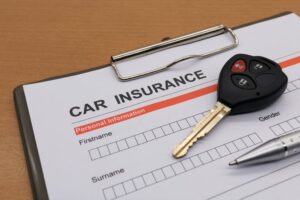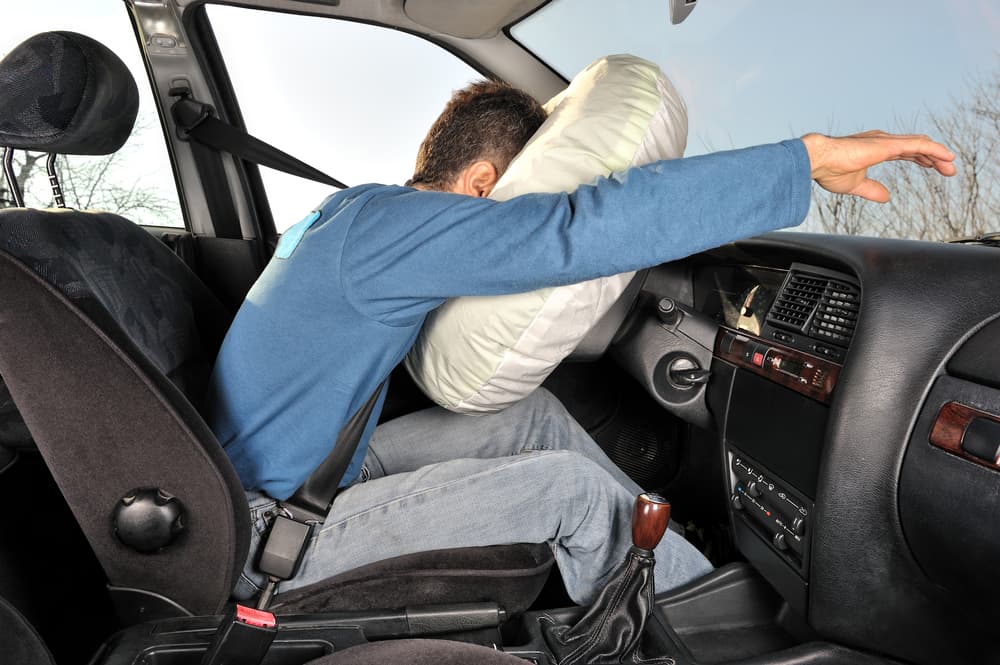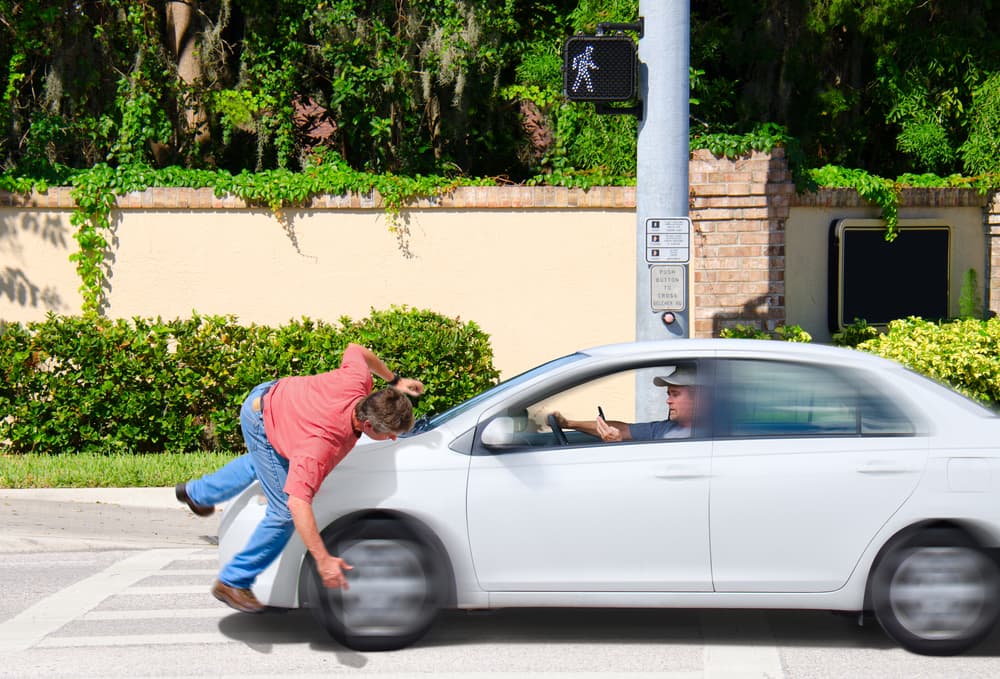Every state requires drivers on public roads to have auto insurance. However, auto insurance isn’t cheap, and as many as one out of five drivers in some areas don’t buy auto insurance. If an uninsured driver hits you, obtaining compensation for your injuries and other damages may be more difficult. You should promptly speak to an auto accident attorney to determine how to get compensation for an uninsured driver claim. Skilled car accident lawyers know the insurance company ins and outs and can pursue the compensation you are owed.
Auto Insurance And Liability
 The primary reason drivers in most states must carry auto insurance is to ensure that money is available to compensate someone in a severe car accident. For example, in Texas, every driver must have a minimum of $30,000 in liability insurance per person and $60,000 per accident. They also must have $25,000 in property damage coverage. In a serious car crash, $30,000 for medical bills may not be enough. That may only cover a day or two in the hospital.
The primary reason drivers in most states must carry auto insurance is to ensure that money is available to compensate someone in a severe car accident. For example, in Texas, every driver must have a minimum of $30,000 in liability insurance per person and $60,000 per accident. They also must have $25,000 in property damage coverage. In a serious car crash, $30,000 for medical bills may not be enough. That may only cover a day or two in the hospital.
When drivers don’t have auto insurance as the law requires, they are exposed to potential lawsuits and fines after an accident. They could have to pay the injured person’s damages out of pocket if they caused the crash. If they have insurance, the minimum liability coverage required in that state may be enough to cover your damages. If not, you can file a personal injury lawsuit against them.
Not every at-fault party has enough assets to seize after a successful lawsuit. Your car accident lawyer will discuss if it’s worth filing a lawsuit in your case. Your auto accident attorney can set up a payment plan with the liable driver. It can assist you with getting compensation over time. Some of the person’s property can be sold to pay for some of your damages.
Overview Of Suing An Uninsured Driver
If you suffered an injury in a car accident by an uninsured driver, several options are below. Usually, you would file an auto insurance claim with the at-fault party’s insurance company. If they don’t have auto insurance, here are your options:
File A Personal Injury Lawsuit Against The Uninsured Driver
 First, you may retain a car accident lawyer in your state to file a personal injury lawsuit against the uninsured driver. If the lawsuit succeeds, the driver must compensate you for your medical bills, lost income, and pain and suffering.
First, you may retain a car accident lawyer in your state to file a personal injury lawsuit against the uninsured driver. If the lawsuit succeeds, the driver must compensate you for your medical bills, lost income, and pain and suffering.
However, many uninsured drivers don’t have significant assets to seize after obtaining a judgment in a lawsuit. For example, many uninsured drivers have little in savings and may not even own a car or real estate to go after in a lawsuit. In this case, there can be little reason to pursue a lawsuit against an uninsured driver. Then, you may be better off to seek compensation for your policy’s uninsured and underinsured driver coverage.
If the driver has assets you can pursue in a lawsuit, it can be worth filing a case in court. If the lawsuit succeeds, your car accident attorney may attempt to seize some of the person’s assets to pay for your medical bills and other damages. If they own real estate, you may succeed in forcing the sale of one of their properties to cover your losses. Or, if they own several cars, you may seize one or more of them to pay your medical expenses.
File A Claim On Your Policy
Many drivers have uninsured and underinsured protection in their policies. Some states require drivers to carry this coverage, but others don’t. There are various levels of underinsured and uninsured coverage you can pay for. Many accident victims may have tens or even hundreds of thousands in damages, so paying for the most coverage you can afford is wise. It only costs a few dollars more per month to have uninsured driver protection, and it’s worth it.
If the driver has partial coverage but not enough to cover all your damages, you can still file a claim on their insurance. Once their coverage is maxed out, your uninsured and underinsured insurance will kick in. You can still file a personal injury lawsuit if you haven’t received enough money to cover your damages. A car accident lawyer can determine if the at-fault party has enough unprotected assets to justify the time and expense of a lawsuit.
What Is Judgement-Proof?
It may be possible to sue the uninsured driver in your state, but the person can be judgment-proof. This means that the person doesn’t have sufficient assets that can be taken after a successful lawsuit to cover your losses. This person is judgment-proof because even if you win the lawsuit, they don’t have anything for you to take.
During a free consultation with a car accident attorney, the topic of discussion will likely be the driver’s uninsured status and whether it’s worth it to file a lawsuit. Unfortunately, some seriously injured motorists end up having to pay for their losses because the driver is judgment-proof.
Homestead Laws And Civil Judgements
Another essential matter to understand with an uninsured driver is homestead laws. Many states, such as Texas and Florida, have laws that affect a plaintiff’s ability to collect a judgment.
A state’s homestead law may protect a person’s personal residence from being seized after a successful lawsuit. There may also be limitations on taking a car and personal property. Many uninsured drivers’ assets are less than the state law covers, making collecting difficult or impossible.
Other states may have lower limits on protected assets; many only protect part of a personal residence’s equity. You should talk to a car accident attorney in your state for a free consultation. They’ll be familiar with your state laws and which assets are protected and unprotected from collections after a lawsuit.
How To Use Uninsured Motorist Coverage
 Some drivers may be fine with whether the at-fault party has enough insurance to pay their damages. You may have uninsured and underinsured insurance to cover your medical bills and lost earnings up to policy limits. Many states require this coverage, and others require insurance companies to offer it, but drivers may decline it.
Some drivers may be fine with whether the at-fault party has enough insurance to pay their damages. You may have uninsured and underinsured insurance to cover your medical bills and lost earnings up to policy limits. Many states require this coverage, and others require insurance companies to offer it, but drivers may decline it.
With UM/UIM coverage, you pay for your own coverage, so you control the amount of coverage if there is an accident. Choosing coverage above the minimum will provide more benefits if a severe accident occurs.
For example, suppose you are in a crash that breaks both your legs. You may have tens of thousands in medical bills and be out of work for several months. Your UM/UIM coverage might pay for at least the first few thousand in medical bills and 50 percent of your lost income. Your health insurance may pick up the rest of your medical bills, or you can consider suing the other driver for the rest.
Challenges With Filing Uninsured Driver Claim
It helps in an uninsured accident claim if you have uninsured driver coverage. You will file a claim with your insurance company to pay for medical bills and partial lost income. However, when you seek compensation through your uninsured coverage, your insurance company can try to fight you on your claim. The insurance company wants to limit what they pay, whether you are a client or not.
You and your auto accident lawyer must provide as much evidence as possible to get compensation from your insurance. You should provide photos and videos of the accident scene, if available. Give the insurance company the names and contact information of eyewitnesses who say the other party caused the accident. The police report may also be useful in showing that the other driver was at fault.
Another option in some states is to file your claim through your MedPay coverage. Many states require every insurance company to offer a minimum of $1,000 in coverage for MedPay. Most insurance providers offer higher levels of coverage, too. MedPay will cover your medical bills up to policy limits, regardless of fault.
Proving The Uninsured Driver Is At Fault
Like any auto accident, you must prove that the other driver caused the accident to potentially receive compensation in a lawsuit. To prove the uninsured driver is liable, you must prove they were negligent. Proving negligence means proving the following points:
- The other driver had a duty of care to you. For example, a car driver has a duty of care to drive safely and not injure others on the road.
- The other driver violated their duty of care. For example, the other party was distracted on their phone and hit you at a stop sign.
- You suffered injuries in the accident: For instance, you broke your arm when the other driver hit you.
- Your damages can be compensated by compensating you in a claim or lawsuit.
Your attorney will attempt to prove the uninsured driver caused the accident by showing strong evidence. Evidence from the accident that may prove liability includes photos and video you take after the accident, eyewitness testimony, and surveillance video. You also must show proof that you have injuries and damages from the crash, such as your medical records and bills.
What If The At-Fault Driver Flees?
It is illegal in every state to leave the scene of an accident. However, many drivers still leave the crash scene, especially if they don’t have insurance. A driver convicted of leaving the scene is guilty of a misdemeanor and will be fined. Jail is also possible in some states.
No matter why the at-fault party left the accident scene, it may be difficult to identify them, so you can file a claim on their insurance if they have it. In some cases, the police and your lawyer can figure out who the driver is. Many businesses have security cameras that may have captured the accident. However, if the liable driver isn’t caught, you may obtain compensation from your uninsured and underinsured coverage.
What Compensation Can You Get In An Uninsured Driver Claim?
 If you are hurt in an uninsured driver crash, you may be stuck with a pile of medical bills, thousands in lost income, and pain and suffering. You deserved fair compensation for your injuries and other losses. You may receive several types of compensation in a lawsuit or uninsured driver claim on your policy.
If you are hurt in an uninsured driver crash, you may be stuck with a pile of medical bills, thousands in lost income, and pain and suffering. You deserved fair compensation for your injuries and other losses. You may receive several types of compensation in a lawsuit or uninsured driver claim on your policy.
If you find the other driver and file a lawsuit, you may receive compensation for medical bills, lost income, and pain and suffering. However, you and your lawyer must decide if it’s worth filing a lawsuit against someone without insurance. If they’re judgment-proof, it may be a waste of time and money.
If you file an uninsured driver claim on your own policy, you can receive compensation for your medical bills and lost income up to policy limits. Many uninsured and underinsured policies cover the first few thousand in medical bills and approximately 50 percent of income, also up to the first few thousand. You may have to pay out of pocket for the rest of your expenses, and uninsured coverage doesn’t pay for pain and suffering.
Paying out of pocket after another driver injures you isn’t fair. You should speak to your community’s experienced car accident attorney today. The attorney regularly handles auto accident cases, including uninsured drivers and hit-and-run accidents. The lawyer can review your case for free and determine the best legal options. It may be beneficial to file a personal injury lawsuit against the other driver and demand compensation for your losses. You can liquidate some of their assets to pay for your damages.
Speak To A Car Accident Attorney Today
Hit by an uninsured or underinsured driver and have injuries and other damages? You should speak to a car accident attorney about filing a lawsuit. You can get compensation for your medical bills, lost earnings, and pain and suffering. Your attorney may also help maximize your compensation from your own insurance policy. Personal injury attorneys offer a free consultation, so there is nothing to lose by talking to an attorney now.



